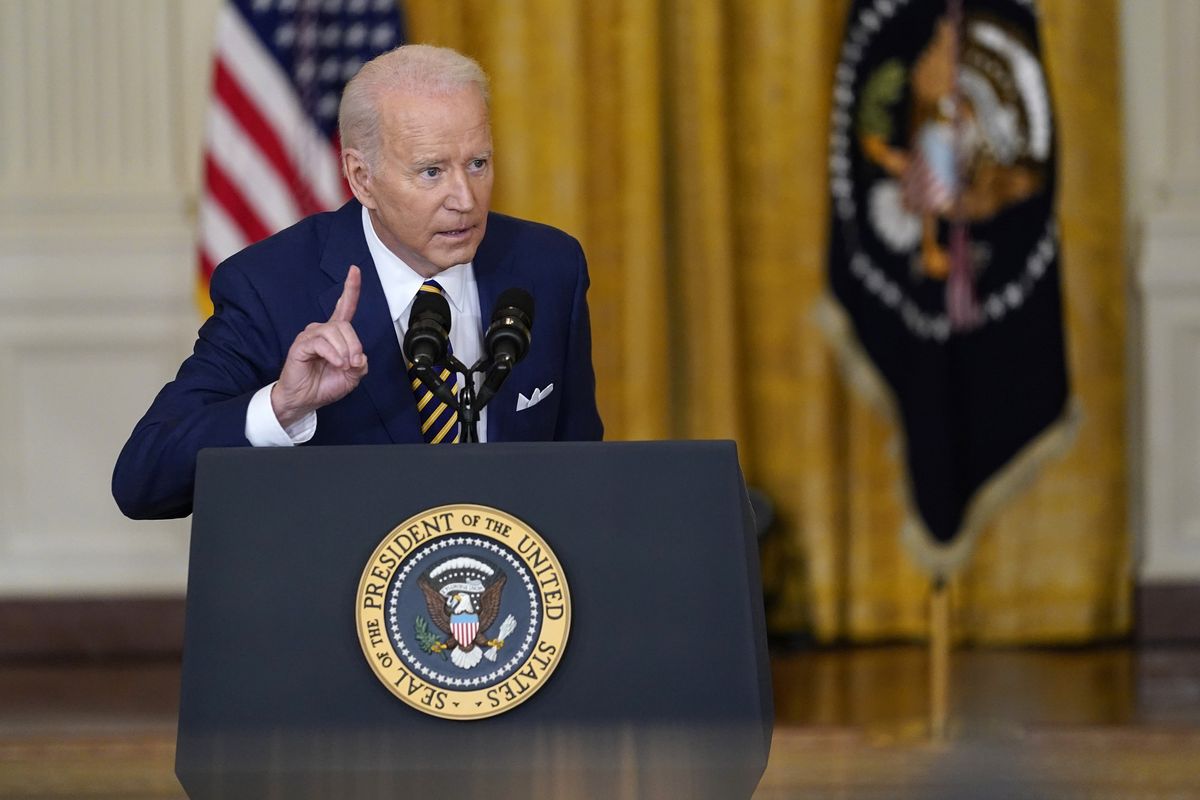
KOMPAS.com — US President Joe Biden travels Thursday to South Korea and Japan — his first trip to Asia since taking office — following his summit with Southeast Asian leaders at the White House last week.
In Seoul, Biden will meet newly inaugurated South Korean President Yoon Suk Yeol, against the backdrop of North Korea's ballistic missile tests and coronavirus outbreak.
In Tokyo, Biden will participate in the Quad partnership summit with Japanese Prime Minister Fumio Kishida, Indian Prime Minister Narendra Modi, and either Prime Minister Scott Morrison or his contender Anthony Albanese — depending on who wins Saturday's Australian election. It will be the Quad's fourth meeting and second in-person session since the alliance was revived in 2017 to counter China in the Indo-Pacific.
The Biden administration's spotlight on the Indo-Pacific is a clear signal that the region remains its priority and China its greatest strategic challenge, even as it responds to Russia's invasion of Ukraine. Biden national security adviser Jake Sullivan characterized the concurrent trans-Atlantic and trans-Pacific coalition-building as an "integration" and "symbiosis" in strategy.
Also read: US Hails New Era with ASEAN as Summit Commits to Raise Level of Ties
"President Biden's unique capacity to actually stitch those two together is, I think, going to be a hallmark of his foreign policy," Sullivan told reporters Thursday.
Some key issues to watch:
China
The trip will convey an "affirmative vision of what the world can look like if democracies and open societies of the world stand together to shape the rules of the road, to define the security architecture of the region, to reinforce strong, powerful, historic alliances," Sullivan said. "We think it will be heard in Beijing."
Observers say Biden will reaffirm the US commitment to a free and open Indo-Pacific and use the Ukraine crisis to signal that unilaterally changing the status quo by force is as unacceptable in Asia as it is in Europe.
"The administration wants to make it very clear that there is strong support for Taiwan throughout the region, and that there is tremendous capability there as there has proven to be capable in the trans-Atlantic alliance vis-à-vis Ukraine," Robert Daly, director of the Wilson Center's Kissinger Institute on China and the United States, told VOA.
The Quad will also consult on tensions in the South China Sea and the recent security agreement between Beijing and the Solomon Islands that has triggered fears of a Chinese military base in the strategically important waters.
Also read: ASEAN Aims to Secure 23 Percent Renewable Energy by 2025
Canberra, a close neighbor, is very concerned, said Susannah Patton, a research fellow at the Lowy Institute. "It has been fundamental to Australia's view of its own security that hostile powers should not be able to project force against Australia from the Pacific," she told VOA.
Overall, Beijing's modernization of its armed forces is pushing Quad countries to catch up, Charles Edel, Australia chair at the Center for Strategic and International Studies, told VOA. China's increased military spending in the past decade has led regional countries such as Singapore, Japan, Australia, and Taiwan to purchase new weapons technology, mainly from the US.
































